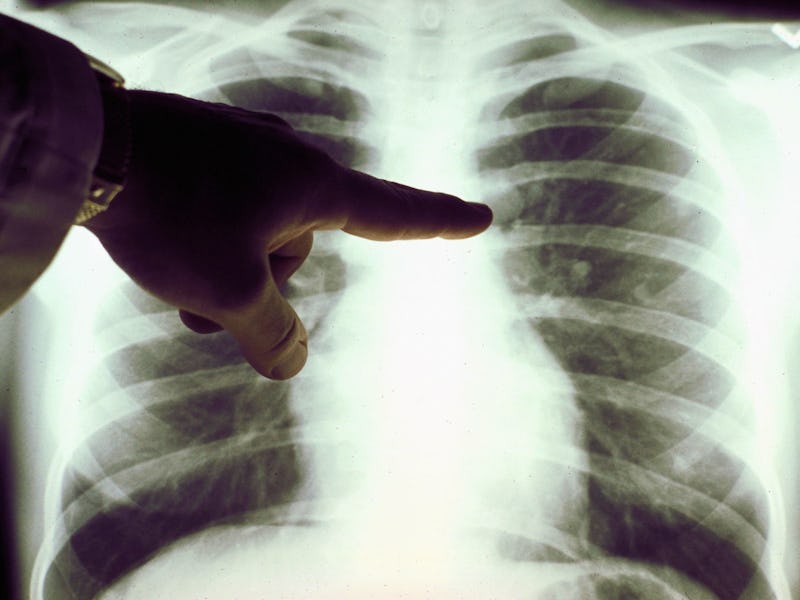This $2 Mobile Cancer Detector Will Save Lives. Maybe Even Mine.
An ex-smoker reflects on the bittersweet possibility of knowing.

Some uncounted attempt to quit smoking — after the first try but before my last — I vividly remember coming across a stray Camel Turkish Gold stuck between the back of my desk and the wall. You smoke a pack a day long enough and a drag starts to feel like a fist opening and closing in your lungs. It had been nearly a week since I tossed my last pack of smokes from the window of a moving car in a fit of self-disgust. Yet there it was. Dried out. Dusty. Waiting to kill me. Took me about half a minute to clean it, stick it in my mouth, and light that motherfucker up on the gas stovetop burner.
I finally kicked that hideous bitch of a habit, but the fear remains that the damage is done. You inhale enough of that shit and it gets in there and waits. So I am both elated and terrified that Harvard researchers have cracked a portable disease-detecting paper machine that can diagnose you with cancer for just $2.
Times of India quotes the study’s description of how this works:
“The prototype device integrates paper microfluidics (to enable fluid handling) and a multilayer structure, or a ‘paper machine,’ that allows a central patterned paper strip to slide in and out of a fluidic path and thus allows introduction of a sample, wash buffers, an amplification master mix, and detection reagents with minimal pipetting, in a handheld, disposable device intended for point-of-care use in resource-limited environments.”
The cheapest disease-detection system ever could save countless lives and fortune in medical costs, so it’s not hyperbole to call this a massively important breakthrough. There’s always a catch. As the New Yorker found, early detection can potentially lead to a lot of painful and unnecessary medical procedures when warning signs don’t actually develop into diseases. Prostate cancer treatments have been particularly susceptible to this problem.
The future is truly arriving when you can diagnose a fatal disease for less than the cost of a pack of carcinogens. Researchers are still tweaking the device to get it ready for widespread use, and every day I don’t light up is a small victory. I’m holding my breath.